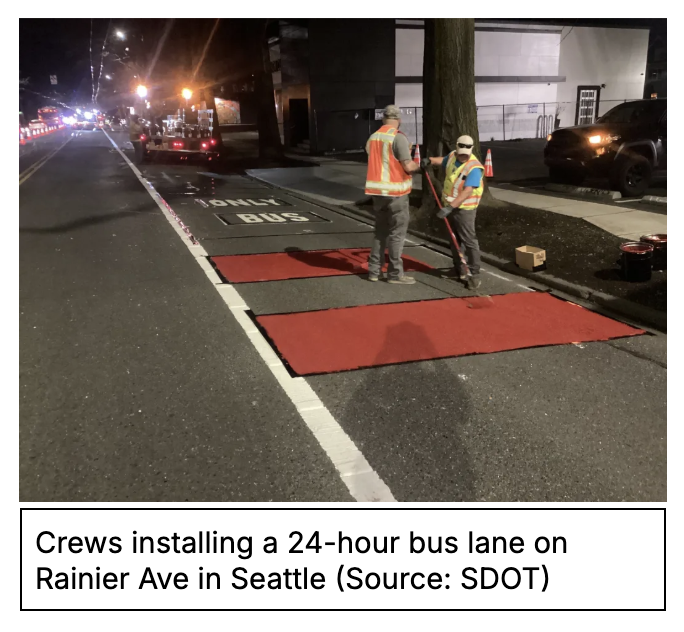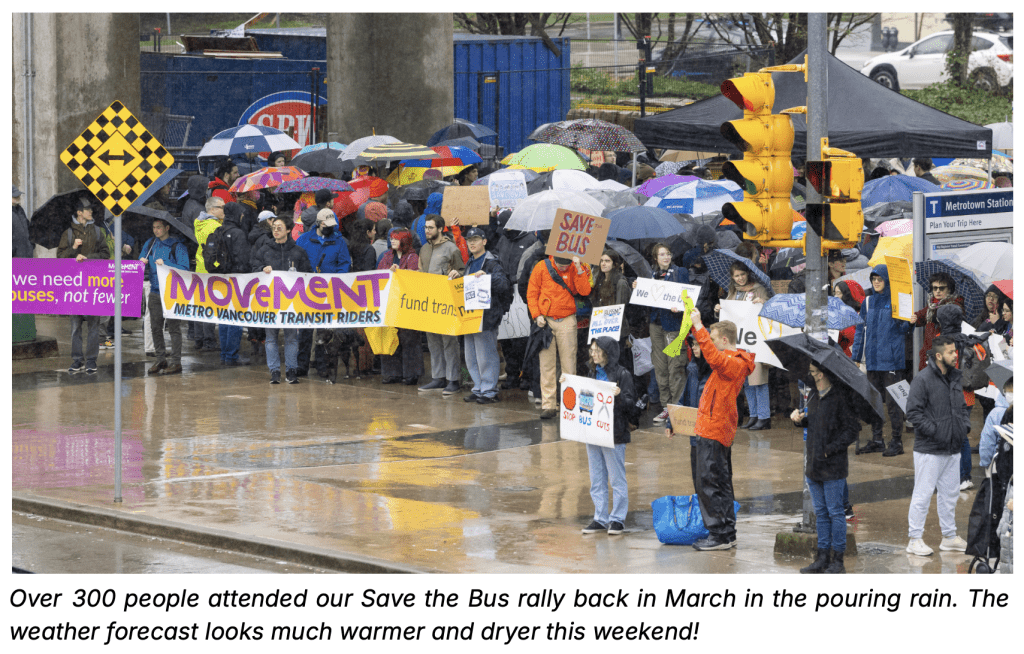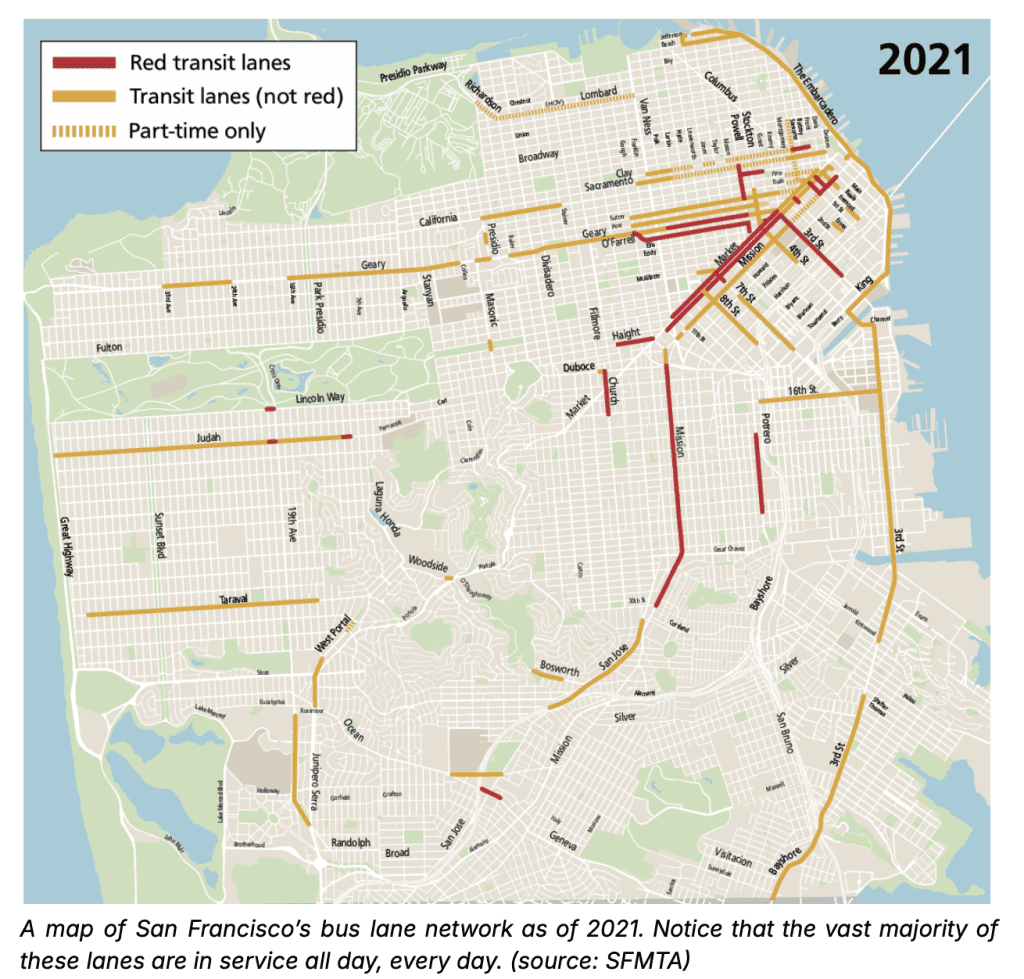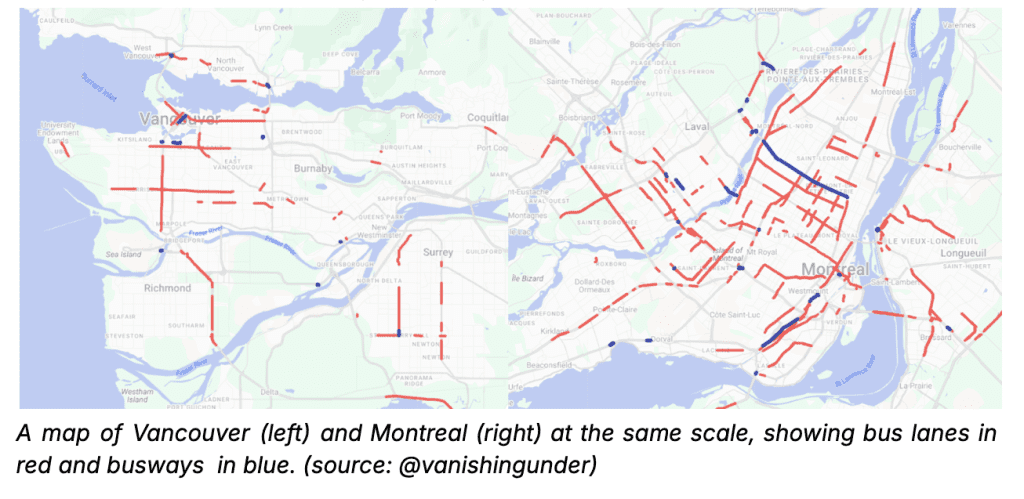Movement to host rally in South Vancouver on Saturday
Bus riders seeking faster progress on one-year anniversary of Vancouver’s bus lane motion
For Immediate Release
August 21, 2025
VANCOUVER – On July 24, 2024, Vancouver City Council unanimously passed the motion “Taking Urgent Action to Boost Street Capacity and Speed up Transit Service for Vancouverites.” This motion approved bus priority on nine corridors on the city’s busiest and most congested bus routes, with a commitment to complete two corridors each year.
One year later, planning work continues, but 0 new kilometres of new bus lanes have been installed.
While rail lines take years to build, bus lanes are one of the cheapest, fastest, and most effective tools we have to get the city out of congestion. We know that people often cite slow buses and poor reliability as the reason they choose to drive a car. We also know that those same people will switch to the bus when we make it fast and reliable. In addition, hundreds of thousands of Vancouverites already ride buses every day, and they deserve better.
The 2023 Bus Speed and Reliability Report from TransLink has estimates of the daily cumulative delay experienced by transit riders. Adding up all the minutes of delay, for all bus riders, across the nine corridors specified in the motion amounts to 7,000 hours of delay every day. In the 365+ days since the motion was passed, this delay culminates to over 314 years.
The bus lanes promised in the motion would significantly reduce this delay, improving the lives of transit riders. And bus lanes don’t only benefit transit riders, they benefit everyone using Vancouver roads. Bus lanes are the only way to address traffic in our densifying city.

Bus lanes move people more efficiently than general purpose lanes.
Bus lanes are not expensive; they just require signs and paint. They can be implemented quickly, like in Toronto where bus lanes were installed in less than a week on Spadina Avenue.
Minneapolis and Seattle, despite having smaller populations and much lower transit ridership than our region, have 50% more bus priority than us (Minneapolis has 335km, Seattle has 314km, and we have 212km).
Movement is eagerly anticipating the first bus lane corridor since this motion, on Granville St. It will see bus lane hours extended to 24 hours for much of the street’s length, and peak-only bus lanes through Marpole. Movement has been engaging with Marpole residents to reinforce the importance of those lanes, and a summary of that engagement can be found here.

Kingsway, Main, and Hastings are the next streets in line for bus lanes, followed by 49th Avenue and Marine Drive. These are the corridors we’re urging Vancouver to finish faster.
Join us, Aug. 23 at 1 p.m. at Gordon Park, along 49th Avenue (one of the priority corridors-in-waiting) in celebration of the bus lane motion, as we hold a community picnic / rally in support of bus lanes!
Quotes
“Our region’s population is growing and transit expansion hasn’t kept up the pace. To prevent gridlock, we need to move people more efficiently, which means bus lanes!”
– Michelle Scarr, Director of Operations and Strategy, Movement“Council’s unanimous support for bus lanes makes it clear to us that they understand the benefits of this stuff. We’re here to encourage them to step on the gas. They deal with a lot of tough issues, but on this one, they can deliver big changes in a short time, with almost no money.”
– Denis Agar, Executive Director, Movement“If your fastest transit option still takes double, triple, the amount of time it takes to drive, you are just going to drive, which means even more traffic.”
– Chris, Movement volunteer“Measures such as bus lanes reduce travel time, increase reliability, and improve the
efficiency of our transit system, helping more people get to where they need to go.
Savings in operational costs achieved from such measures can be reinvested elsewhere
in the system, with the launch of Route 80 last April as an example.”
– TransLink spokesperson, as quoted in this article“Access to transportation is an important social determinant of health, allowing for
connection to our communities, our places of work, our friends, our family, and our
day-to-day essentials. Dedicated bus lanes can improve bus speed and reliability,
increase transit ridership, decrease congestion, and help Vancouver reach its
transportation modal shift goals.”
– Dr. Michael Schwandt, Medical Health Officer (full endorsement letter available here)


